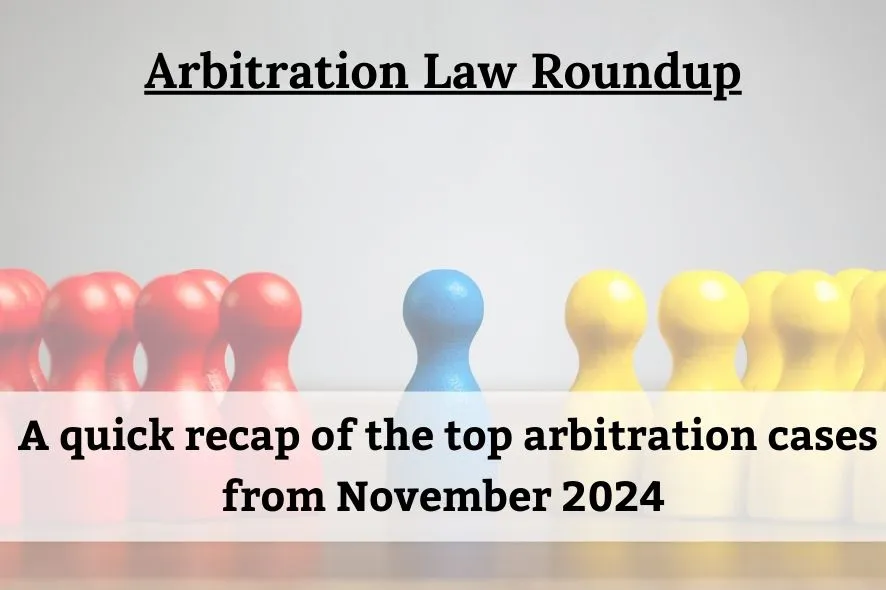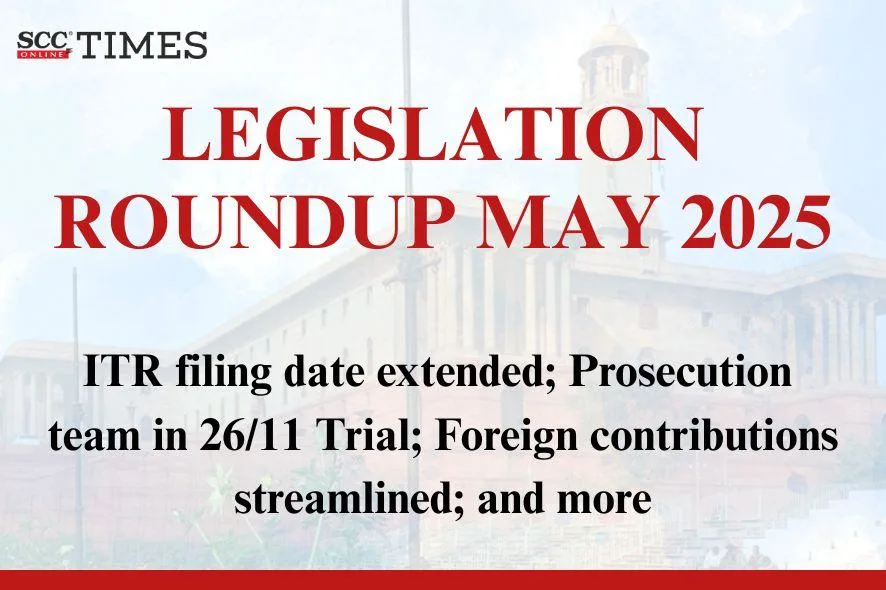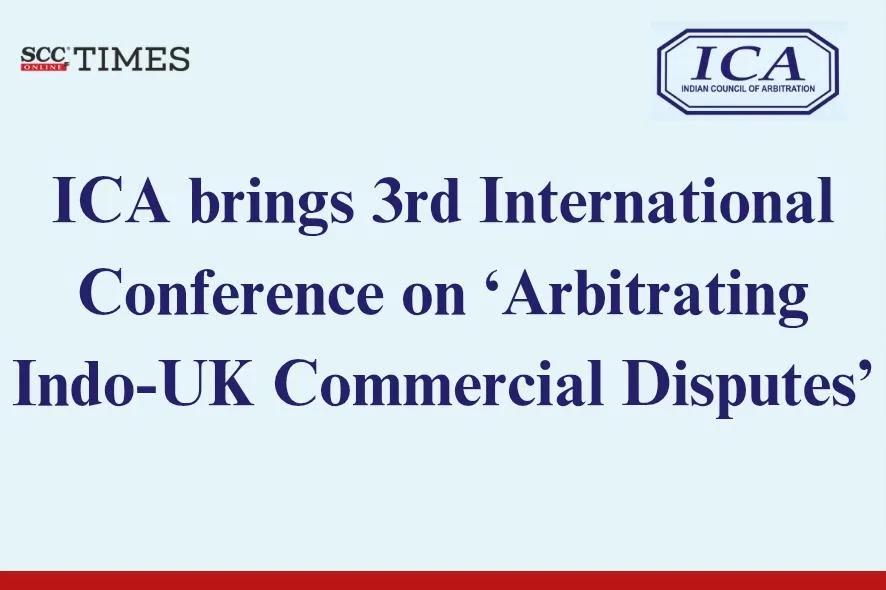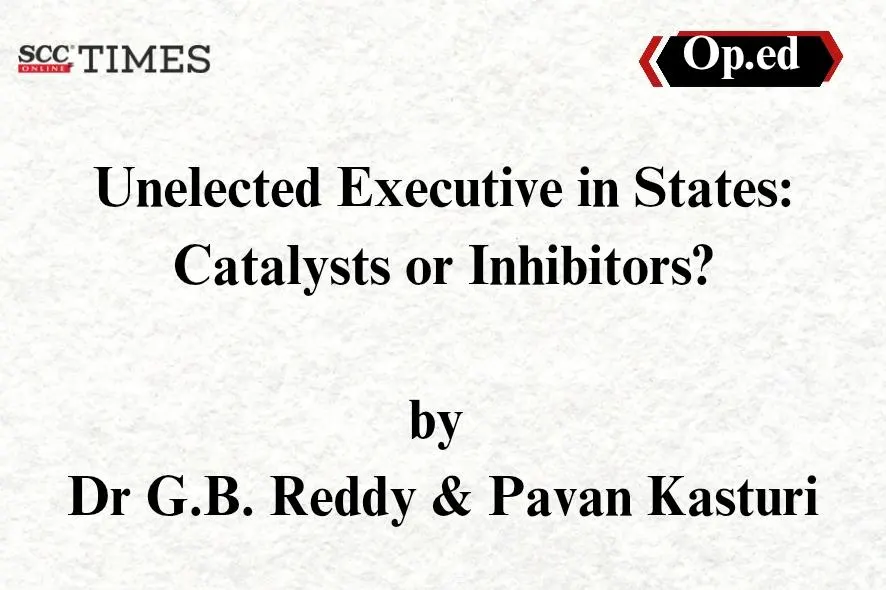Arbitration Act 1996 a self-contained code which does not distinguish between government and private entities: Supreme Court
The instant appeal challenged Madras High Court’s order that was passed in an interlocutory proceeding during the pendency of the Section 34, Arbitration and Conciliation Act, 1996 challenge, wherein the High Court had stayed the operation of an arbitral award on the condition that a bank guarantee be furnished in respect of the principal amount awarded. The 3-Judge Bench of Dr DY Chandrachud, CJ*., JB Pardiwala and Manoj Misra, JJ., stated that the Arbitration Act is a self-contained code, which does not distinguish between governmental and private entities. Hence, the decision of the Court cannot be influenced by the position of the party before it and whether it is a fly-by-night operator.
It was further stated that an assessment as to whether a party is reliable or trustworthy is subjective. “Many private entities, too, may rely on the size of their undertaking, its success, public image, or other factors to argue that they are not fly-by-night operators. In the absence of any provision of law in this regard, it would be inappropriate for courts to apply this standard while adjudicating the conditions upon which a stay of an award may be granted”. Read More
Unilateral appointment clauses in public-private contracts violative of Article 14 of Constitution; Arbitrator’s selection from PSUs panel not a mandate: Supreme Court
While hearing two references made to the larger Bench, wherein the correctness of the Central Organisation for Railway Electrification v. ECI-SPIC-SMO-MCML (JV), (2020) 14 SCC 712 (‘ECI-SPIC’) was called in question and the issue of unilateral appointment of arbitrators, and that whether a person who is ineligible to be appointed as arbitrator, can nominate an arbitrator, was to be dealt with, the five-Judge Bench comprising of Dr. DY Chandrachud, CJI and Hrishikesh Roy, JB Pardiwala, PS Narasimha and Manoj Misra, JJ., held that unilateral appointment clauses in public-private contracts are violative of Article 14 of the Constitution.
The majority opinion was penned by CJI Dr. DY Chandrachud for Justices JB Pardiwala and Manoj Misra. Justice Hrishikesh Roy and PS Narasimha delivered their separate judgments with concurrence with the majority on several points. Read More
Application for arbitrator’s appointment cannot be rejected on multiplicity alone if cause of action for subsequent arbitration arises: Supreme Court
In an appeal against the decision of the Bombay High Court, wherein, the Commercial Arbitration Petition filed under Section 11(6) of the Arbitration and Conciliation Act, 1996 (‘the Act, 1996’) at the instance of the Shahaji Bhanudas Bhad (‘present respondent’) was allowed and sole arbitrator was appointed to adjudicate the disputes and differences between HPCL Biofuels Ltd. (‘the appellant’) and the respondent, the Division Bench of CJI Dr. DY Chandrachud and JB Pardiwala*, JJ. allowing the appeal set aside the impugned decision.
The Court held that, in the absence of any liberty being granted at the time of withdrawal of the first application under Section 11(6) of the Act, 1996, the fresh application filed by the respondent under the same provision was not maintainable and the fresh application was time-barred, hence, the respondent was not entitled to the benefit of Section 14(2) of the Limitation Act. The Court also ruled that the respondent was also not entitled to the benefit of condonation of delay under Section 5 of the Limitation Act. Read More
Express designation of place in an arbitration agreement is an appropriate criterion to determine Seat of Arbitration: Supreme Court
While deciding the instant petition filed under Section 11(6)(a) read with Section 11(12)(a) of the Arbitration and Conciliation Act, 1996, seeking a referral of the disputes that have arisen between the parties to arbitration and consequent appointment of an arbitrator by the Court; the 3-Judge Bench of Dr DY Chandrachud, CJ., JB Pardiwala* and Manoj Misra, JJ., held that more appropriate criterion for determining the seat of arbitration is that where in an arbitration agreement there is an express designation of a place of arbitration anchoring the arbitral proceedings to such place, and there being no other significant contrary indicia to show otherwise, such place would be the ‘seat’ of arbitration even if it is designated in the nomenclature of ‘venue’ in the arbitration agreement.
The Court further held that the moment ‘seat’ is determined, it would be akin to an exclusive jurisdiction clause whereby only the jurisdictional courts of that seat alone will have the jurisdiction to regulate the arbitral proceedings. The notional doctrine of concurrent jurisdiction has been expressly rejected and overruled by this Court in its subsequent decisions.
The Court further clarified that the ‘Closest Connection Test’ for determining the seat of arbitration by identifying the law with which the agreement to arbitrate has its closest and most real connection is no longer a viable criterion for determination of the seat or situs of arbitration in view of the Shashoua Principle. The seat of arbitration cannot be determined by formulaic and unpredictable application of choice of law rules based on abstract connecting factors to the underlying contract. Even if the law governing the contract has been expressly stipulated, it does not mean that the law governing the arbitration agreement and by extension the seat of arbitration will be the same as the lex contractus. Read More
Under Section 11(6) A&C Act, Referral Court must limit its enquiry to the question of limitation period only: Supreme Court
While considering the instant arbitration petition seeking appointment of arbitrator for adjudication of disputes and claims in terms of the Shareholders Agreement dated 25-07-2011 entered into between the petitioner and the respondents; the 3-Judge Bench of DY Chandrachud, CJ., JB Pardiwala* and Manoj Misra, JJ., reiterated that while determining the issue of limitation in the exercise of powers under Section 11(6) of the Arbitration and Conciliation Act, 1996, the referral court must only conduct a limited enquiry for the purpose of examining whether the Section 11(6) application has been filed within the limitation period of three years or not. At this stage, it would not be proper for the referral court to indulge in an intricate evidentiary enquiry into the question of whether the claims raised by the petitioner are time barred. Such a determination must be left to the decision of the arbitrator. Read More
‘Existence of arbitration agreement in license agreement and share subscription agreement not in dispute’, Supreme Court refers matter to DIAC for appointment of sole arbitrator
In an arbitration petition, the division bench of Dr. D.Y. Chandrachud, CJI and Manoj Misra*, J. said that since at the stage of consideration of a prayer under Section 11(6) of the Arbitration and Conciliation Act, 1996 (‘Act, 1996’) , the Court has to confine itself to the examination of the existence of an arbitration agreement, it would not be appropriate for it to delve deep into the issue as it could well be considered by the arbitrator on the basis of evidence led by the parties. More so, when existence of arbitration agreement in the license agreement and share subscription agreement is not in dispute. Therefore, the Court referred the matter to the Delhi International Arbitration Centre for the appointment of a sole arbitrator to adjudicate upon the dispute between the parties. Read More
SC clarifies scope of judicial scrutiny under Section 11 of Arbitration Act: Sets aside Bombay HC ruling on appointment of arbitrator
In an appeal against the judgment and order passed by the Bombay High Court, wherein the High Court dismissed the application preferred by the appellant under Section 11 of the Arbitration and Conciliation Act, 1996 (‘Act, 1996’) seeking appointment of an arbitrator to adjudicate disputes and claims in terms of Clause 18.12 of the Master Services Agreement (‘MSA’) executed between the appellant and the respondent, the three judge bench of Dr. Dhananjaya Y. Chandrachud, CJI, J.B. Pardiwala* and Manoj Misra, JJ. while setting aside the impugned judgment, said that the High Court exceeded the limited scope of judicial scrutiny at the stage of Section 11 by undertaking a detailed examination of the factual matrix. The High Court erroneously proceeded to assess the auditor’s report in detail and dismissed the arbitration application. Read More
HIGH COURT CASES
Arbitral Award treated as deemed decree; Execution can be initiated anywhere such decree can be executed: Allahabad High Court
In a petition filed under Article 227 of the Constitution, wherein the jurisdiction of the Additional District Judge, Etawah to hear an execution petition for an award passed in Kanpur was challenged, the single judge bench of Neeraj Tiwari, J. held that since the land being acquired in in Etawah, the passing of the arbitral award at Kanpur will have no bearing in filing of execution proceeding at Etawah in light of the law laid down by the Supreme Court and the provisions of
Awards rendered by MSME Council can be challenged under Section 34 of A&C Act and not under Art. 226: Orissa High Court
In an intra-court appeal against the decision of the Single Judge whereby a challenge to an award passed by the Micro and Small Enterprises Facilitation Council, Cuttack (‘the Council’) under Article 226 of the Constitution was refused to be entertained holding that the said award can be challenged only in accordance with the provisions prescribed under Section 34 of the Arbitration and Conciliation Act, 1996 (‘Arbitration and Conciliation Act’), the Division Bench of Chakradhari Sharan Singh and Murahari Sri Raman, JJ. found no legal infirmity in the impugned order passed by Single Judge, accordingly the appeal was dismissed. Read More










